Delia Jürgens. REFLECTIONS & Kabinett Group Show
1 July to 26 August 2023 ⟶ Galerie
Installation View from outside. Left front. Galerie Georg Nothelfer. Photo: Gernot Seeliger
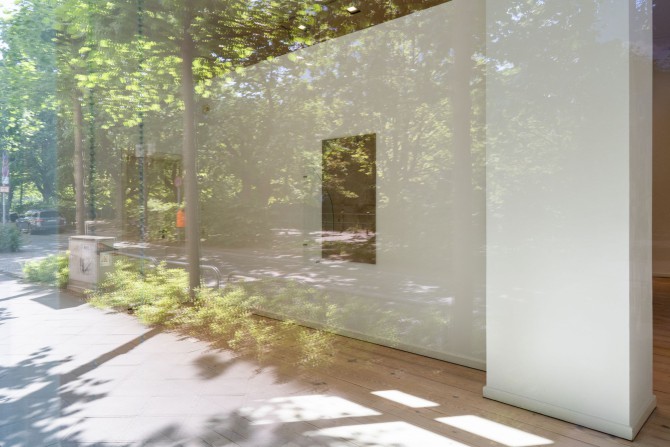
Installation View from outside. Left front. Galerie Georg Nothelfer. Photo: Gernot Seeliger
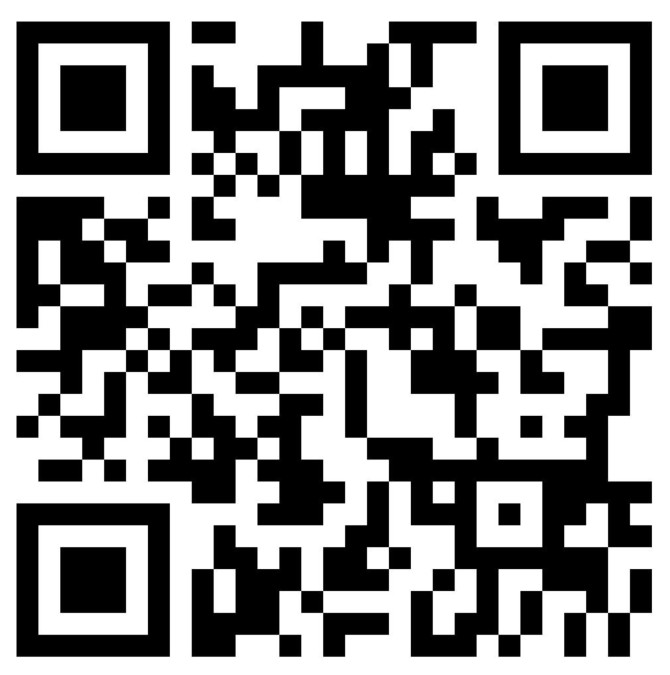
Installation View, Relections, Ebertplatz Cologne. Courtesy Delia Jürgens
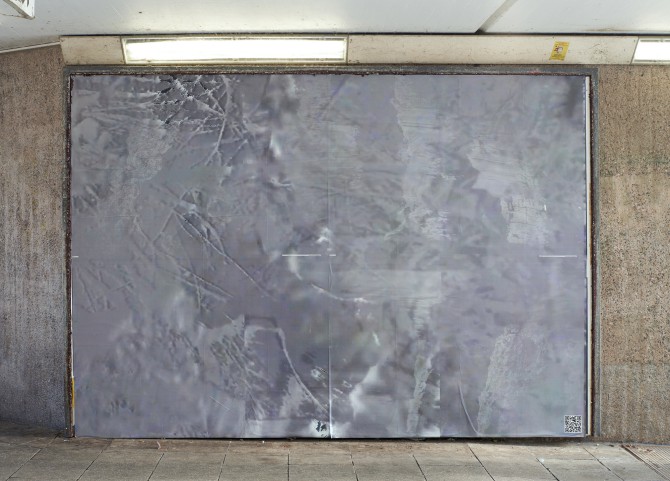
Installation View, Relections, Ebertplatz Cologne. Courtesy Delia Jürgens
Installation View from outside. Right front. Galerie Georg Nothelfer. Photo: Gernot Seeliger.
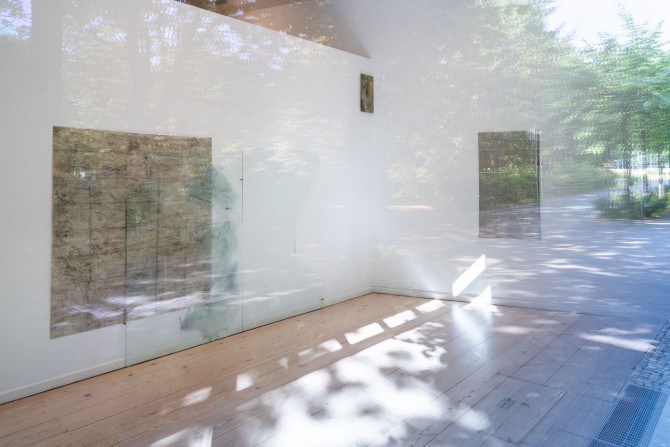
Installation View from outside. Right front. Galerie Georg Nothelfer. Photo: Gernot Seeliger.
Installation View Galerie Georg Nothelfer. Photo: Gernot Seeliger.
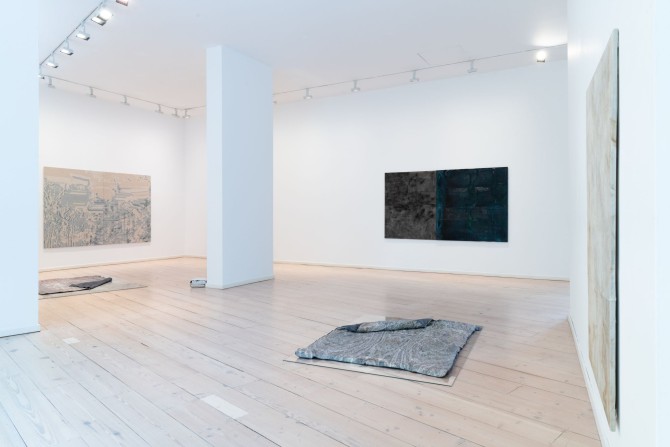
Installation View Galerie Georg Nothelfer. Photo: Gernot Seeliger.
Untitled (forest bathing #5-2), 2020-21, Deconstructed still of digital painting Untitled (forest bathing) woven in cotton on stretcher bar. 2 parts, 190 x 145 cm. Part of the Fragmented Landscapes The Future is but a second away - WALD (2018-2021)
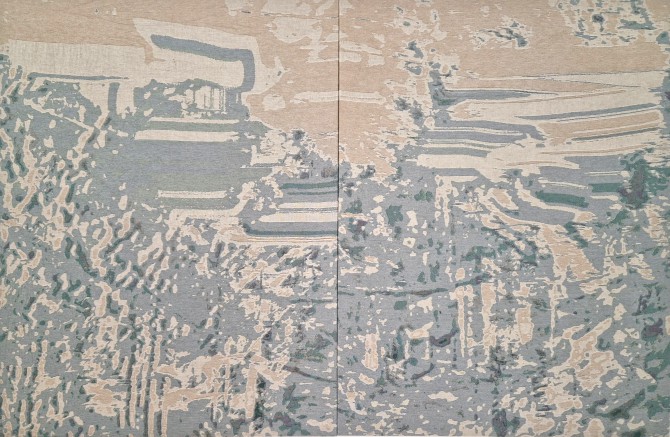
Untitled (forest bathing #5-2), 2020-21, Deconstructed still of digital painting Untitled (forest bathing) woven in cotton on stretcher bar. 2 parts, 190 x 145 cm. Part of the Fragmented Landscapes The Future is but a second away - WALD (2018-2021)
Left: Untitled (nomeva), 2020-21, Charcoal and dye on bleached cotton on stretcher, 155 x 125 cm, Part of the Fragmented Landscapes The Future is but a Second away - WALD (2018-2021)
Right: Untitled (khawuela - {wait}), 2020-21, Paraffin (industrial waste) on charcoal on cotton on stretcher bar, 155 x 150 cm. Part of the Fragmented Landscapes The Future is but a Second away - WALD (2018-2021). Photo: Gernot Seeliger.
Right: Untitled (khawuela - {wait}), 2020-21, Paraffin (industrial waste) on charcoal on cotton on stretcher bar, 155 x 150 cm. Part of the Fragmented Landscapes The Future is but a Second away - WALD (2018-2021). Photo: Gernot Seeliger.
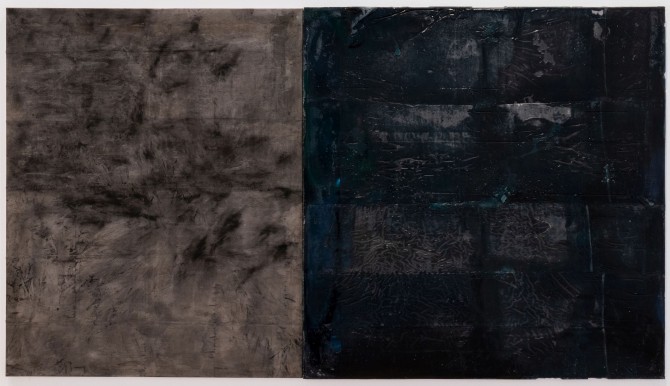
Left: Untitled (nomeva), 2020-21, Charcoal and dye on bleached cotton on stretcher, 155 x 125 cm, Part of the Fragmented Landscapes The Future is but a Second away - WALD (2018-2021)
Right: Untitled (khawuela - {wait}), 2020-21, Paraffin (industrial waste) on charcoal on cotton on stretcher bar, 155 x 150 cm. Part of the Fragmented Landscapes The Future is but a Second away - WALD (2018-2021). Photo: Gernot Seeliger.
Right: Untitled (khawuela - {wait}), 2020-21, Paraffin (industrial waste) on charcoal on cotton on stretcher bar, 155 x 150 cm. Part of the Fragmented Landscapes The Future is but a Second away - WALD (2018-2021). Photo: Gernot Seeliger.
Installation View Galerie Georg Nothelfer. Photo: Gernot Seeliger.
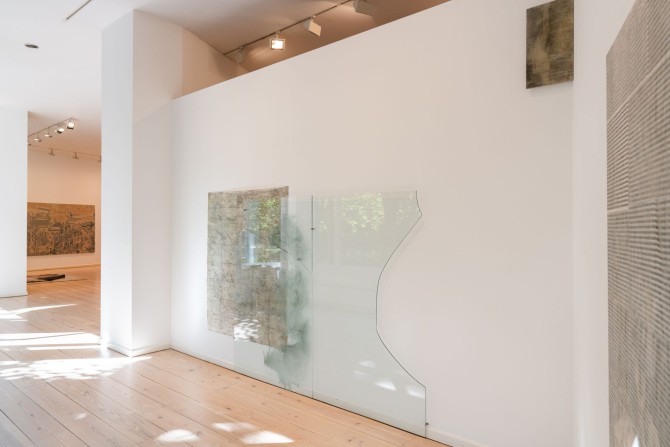
Installation View Galerie Georg Nothelfer. Photo: Gernot Seeliger.
Untitled (forest bathing #4), 2020-21, Pigmented inkjet print of digital painting of real time moments in forest on transparent paper on cotton on stretcher , 135 x 73 cm. Part of the Fragmented Landscapes The Future is but a second away - WALD (2018-2021)
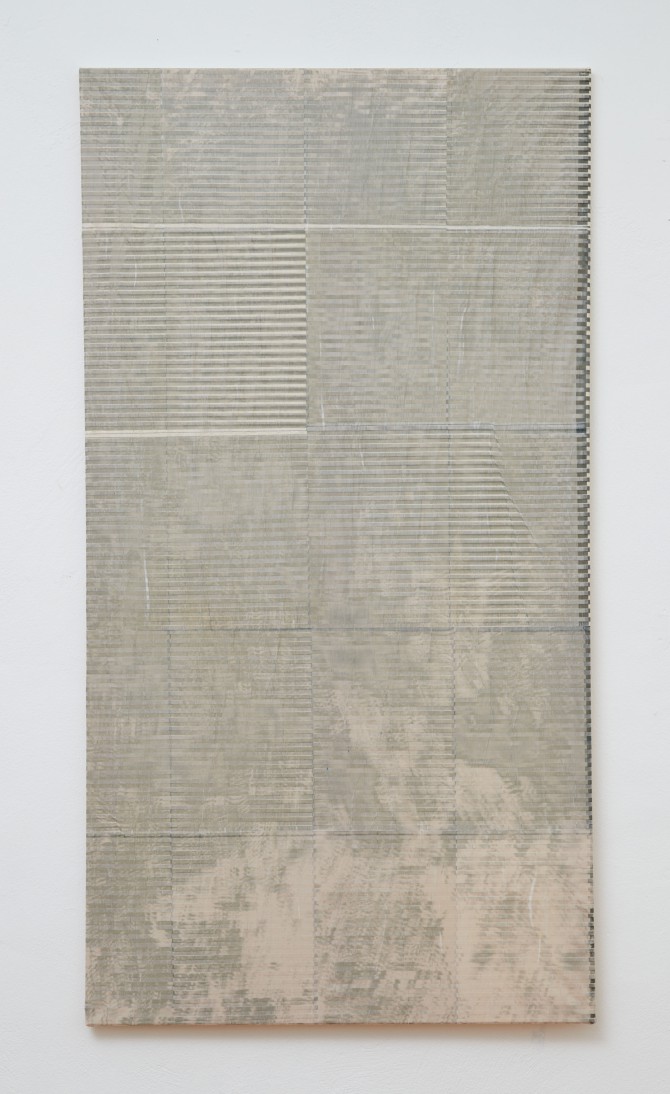
Untitled (forest bathing #4), 2020-21, Pigmented inkjet print of digital painting of real time moments in forest on transparent paper on cotton on stretcher , 135 x 73 cm. Part of the Fragmented Landscapes The Future is but a second away - WALD (2018-2021)
Left: Untitled (petrified #2), 2020-21, Paraffin stains on glass, stainless glass holder, pigmented Inkjet print of deconstructed Stock Image of petrified wood on transparent paper on paint on cotton, 190 x 240 cm. Part of the Fragmented Landscapes The Future is but a second away - WALD (2018-2021). Photo: Gernot Seeliger.
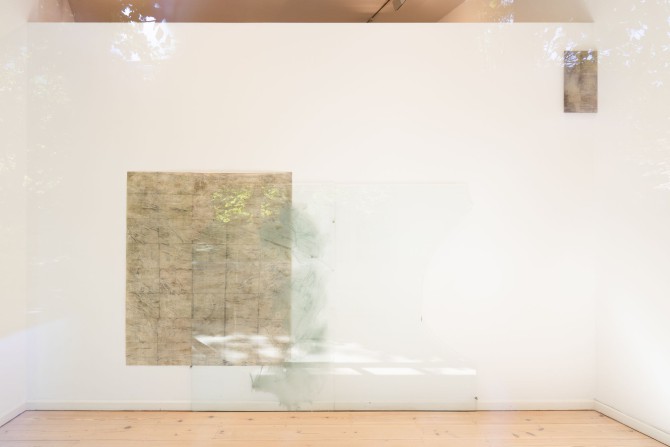
Left: Untitled (petrified #2), 2020-21, Paraffin stains on glass, stainless glass holder, pigmented Inkjet print of deconstructed Stock Image of petrified wood on transparent paper on paint on cotton, 190 x 240 cm. Part of the Fragmented Landscapes The Future is but a second away - WALD (2018-2021). Photo: Gernot Seeliger.
Installation View Galerie Georg Nothelfer. Photo: Gernot Seeliger.
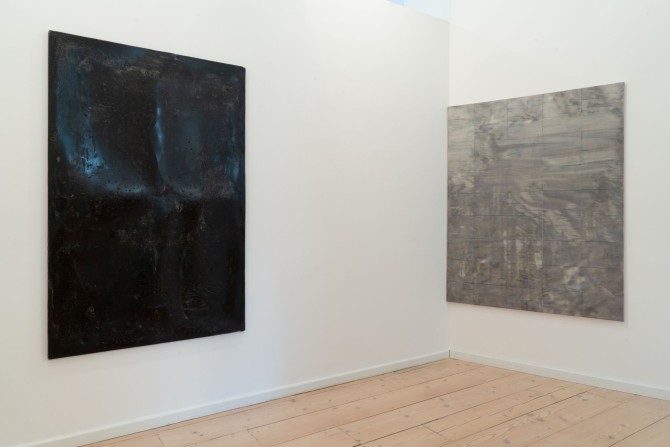
Installation View Galerie Georg Nothelfer. Photo: Gernot Seeliger.
Untitled (forest bathing #5-1), 2020-21, Pigmented inkjet print of deconstructed still of digital painting Untitled (forest bathing) on cotton on stretcher bar, 190 x 145 cm. Part of the Fragmented Landscapes The Future is but a second away - WALD (2018-2021)
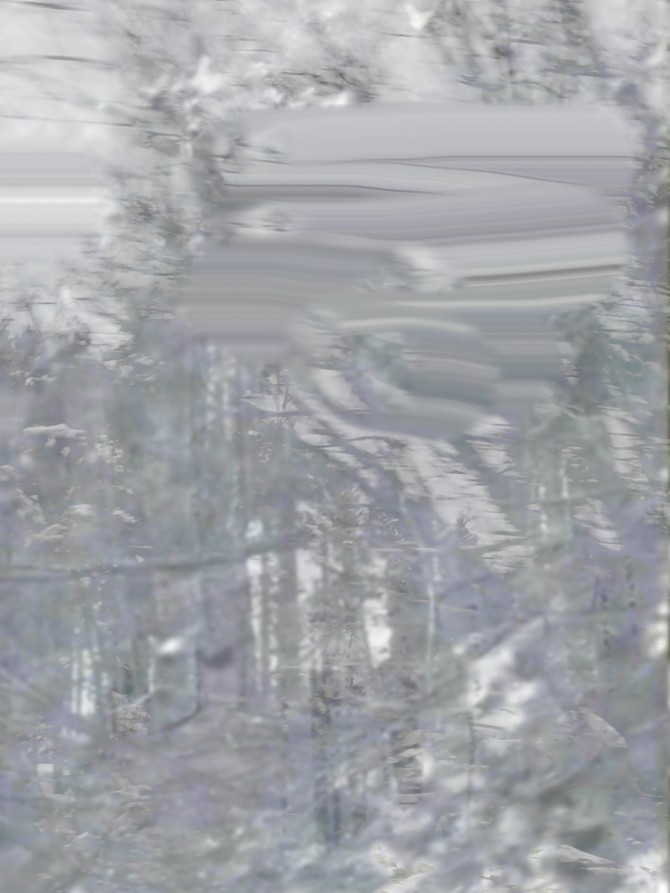
Untitled (forest bathing #5-1), 2020-21, Pigmented inkjet print of deconstructed still of digital painting Untitled (forest bathing) on cotton on stretcher bar, 190 x 145 cm. Part of the Fragmented Landscapes The Future is but a second away - WALD (2018-2021)
Installation View Galerie Georg Nothelfer. Photo: Gernot Seeliger.
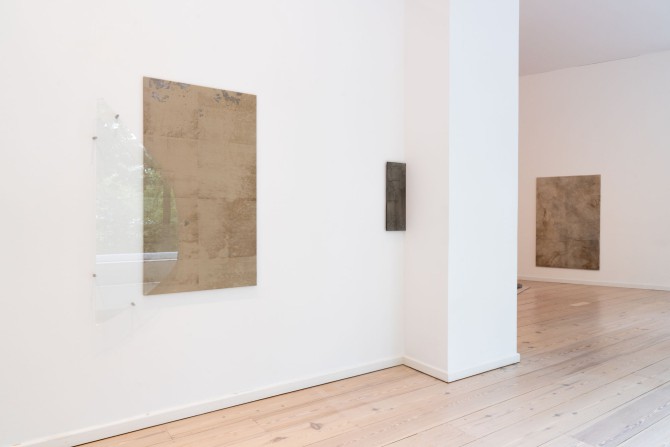
Installation View Galerie Georg Nothelfer. Photo: Gernot Seeliger.
Untitled (forest bathing #2), 2020-21, Light engraving of still of digital painting Untitled (forest bathing) on pigmented inkjet print of still of digital painting Untitled (forest bathing) on transfer film on linen on stretcher bar, glass element with stainless glass holders, 135 x 75 cm (painting), 131 x 46 cm (glass element). Part of the Fragmented Landscapes The Future is but a second away - WALD (2018-2021). Photo: Gernot Seeliger.
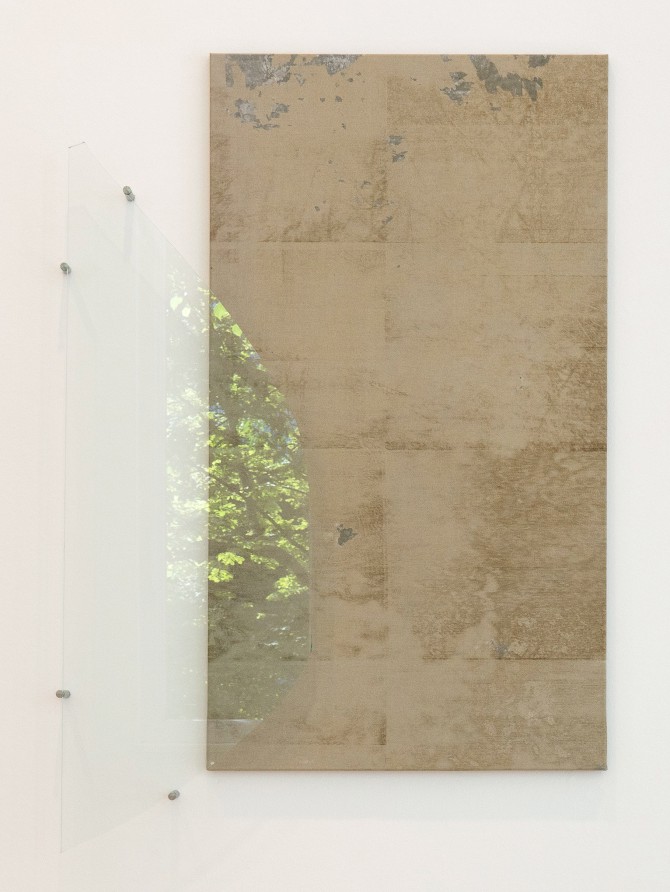
Untitled (forest bathing #2), 2020-21, Light engraving of still of digital painting Untitled (forest bathing) on pigmented inkjet print of still of digital painting Untitled (forest bathing) on transfer film on linen on stretcher bar, glass element with stainless glass holders, 135 x 75 cm (painting), 131 x 46 cm (glass element). Part of the Fragmented Landscapes The Future is but a second away - WALD (2018-2021). Photo: Gernot Seeliger.
Installation View Galerie Georg Nothelfer. Photo: Gernot Seeliger.
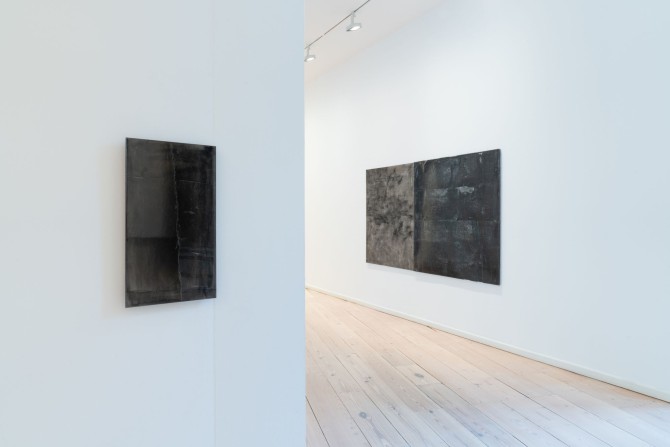
Installation View Galerie Georg Nothelfer. Photo: Gernot Seeliger.
Installation View Galerie Georg Nothelfer. Photo: Gernot Seeliger.
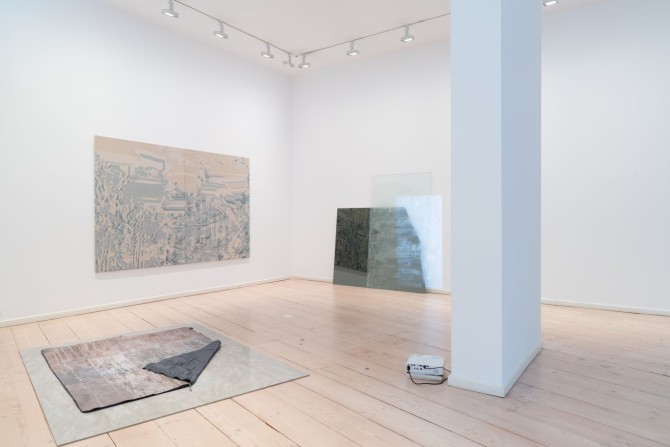
Installation View Galerie Georg Nothelfer. Photo: Gernot Seeliger.
Untitled (forest bathing #5-2), 2020-21, Deconstructed still of digital painting Untitled (forest bathing) woven in cotton on stretcher bar | 2 parts, 190 x 145 cm. Part of the Fragmented Landscapes The Future is but a second away - WALD (2018-2021). Photo: Gernot Seeliger.
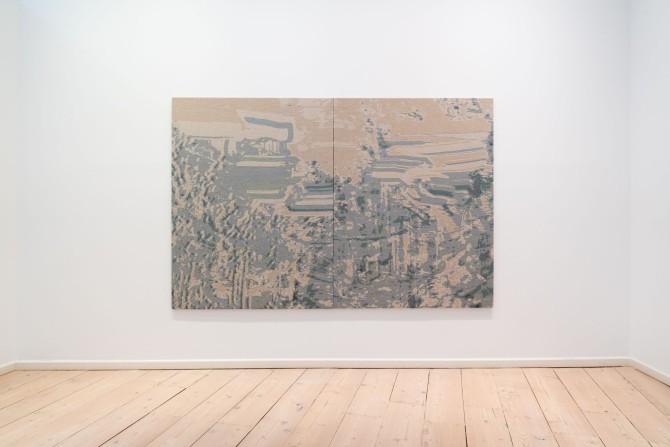
Untitled (forest bathing #5-2), 2020-21, Deconstructed still of digital painting Untitled (forest bathing) woven in cotton on stretcher bar | 2 parts, 190 x 145 cm. Part of the Fragmented Landscapes The Future is but a second away - WALD (2018-2021). Photo: Gernot Seeliger.
Untitled (forest bathing), (2018 - 2021), Digital painting: real time painting of different moments in forests interwoven with worldwide forests of google maps generated through social media algorithms; projected on buttermilk stains on glass and black mirror, 210 x 210 cm. Part of the Fragmented Landscapes The Future is but a second away - WALD (2018-2021)
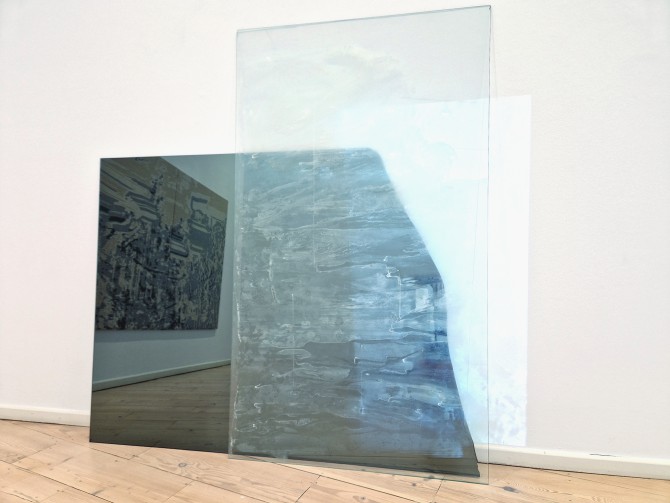
Untitled (forest bathing), (2018 - 2021), Digital painting: real time painting of different moments in forests interwoven with worldwide forests of google maps generated through social media algorithms; projected on buttermilk stains on glass and black mirror, 210 x 210 cm. Part of the Fragmented Landscapes The Future is but a second away - WALD (2018-2021)
Installation View Galerie Georg Nothelfer. Photo: Gernot Seeliger.
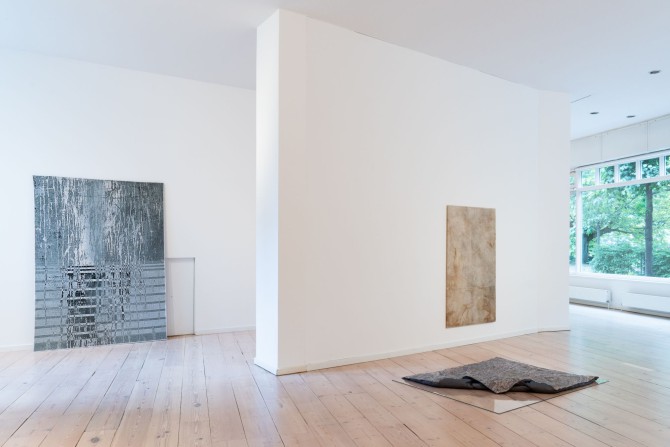
Installation View Galerie Georg Nothelfer. Photo: Gernot Seeliger.
Untitled (Petrified #1), 2019, Deconstructed stock image of fossil rhizomes interlaced with recorded and live streamed studio moments and traces of brush strokes interrupted by saving error woven in cotton on MDF, 252 x 180 cm. Part of the Fragmented Landscapes The Future is but a second away - WALD (2018-2021). Photo: Gernot Seeliger.
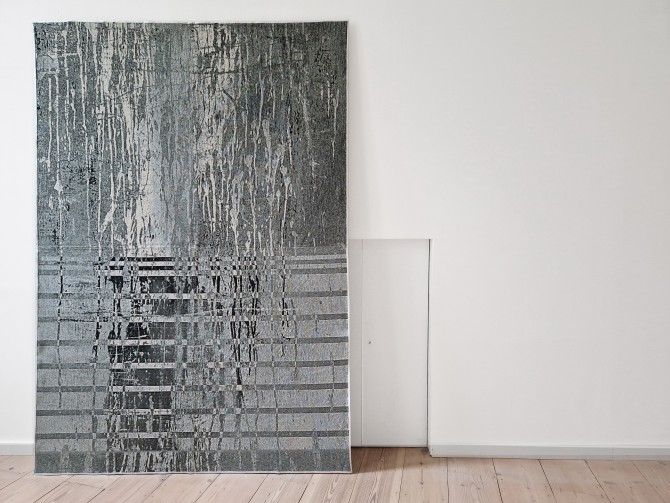
Untitled (Petrified #1), 2019, Deconstructed stock image of fossil rhizomes interlaced with recorded and live streamed studio moments and traces of brush strokes interrupted by saving error woven in cotton on MDF, 252 x 180 cm. Part of the Fragmented Landscapes The Future is but a second away - WALD (2018-2021). Photo: Gernot Seeliger.
Installation View Galerie Georg Nothelfer. Photo: Gernot Seeliger.
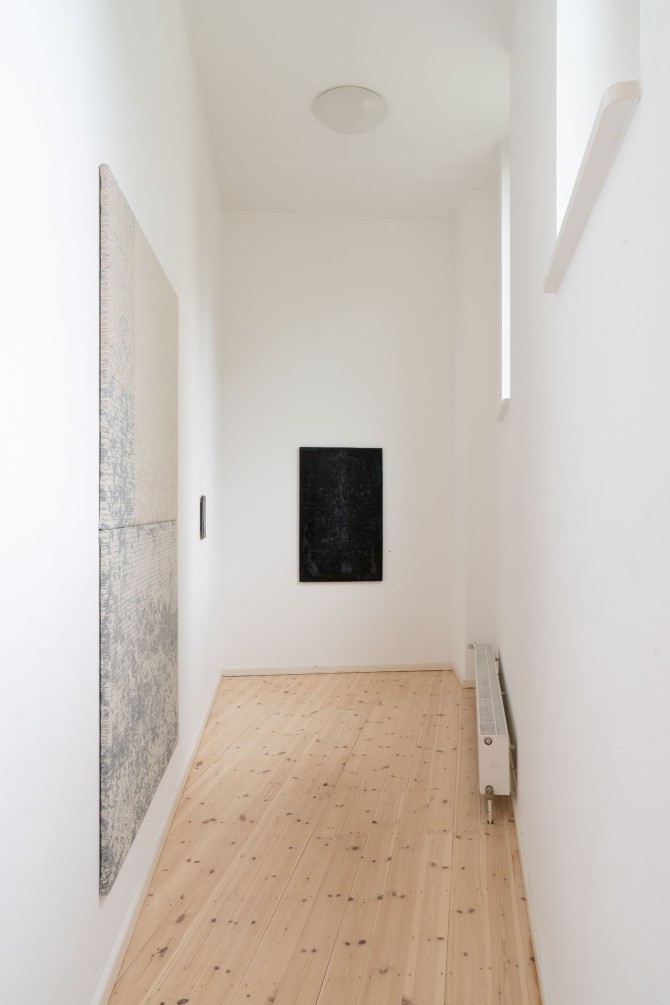
Installation View Galerie Georg Nothelfer. Photo: Gernot Seeliger.
Installation View Galerie Georg Nothelfer. Photo: Gernot Seeliger.
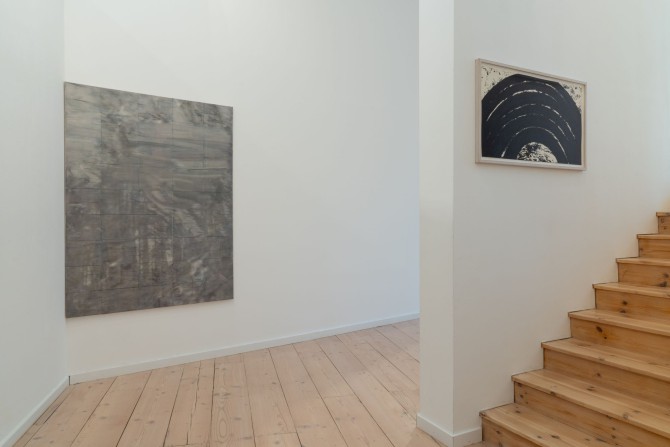
Installation View Galerie Georg Nothelfer. Photo: Gernot Seeliger.
Installation View Kabinett. Photo: Gernot Seeliger.
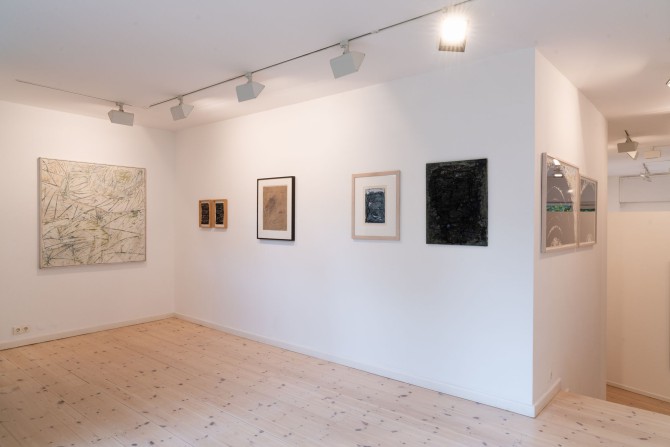
Installation View Kabinett. Photo: Gernot Seeliger.
Richard Serra, Paths & Edges #7, 2007, Etching, 65 x 97, 2 cm, Ed. 60
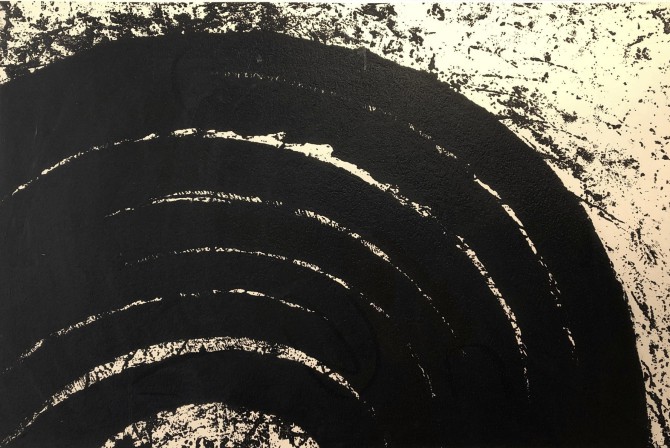
Richard Serra, Paths & Edges #7, 2007, Etching, 65 x 97, 2 cm, Ed. 60
Richard Serra, Paths & Edges #8, 2007, Etching/ Mohachipaper, 59,4 x 74,3 cm, Ed. 60
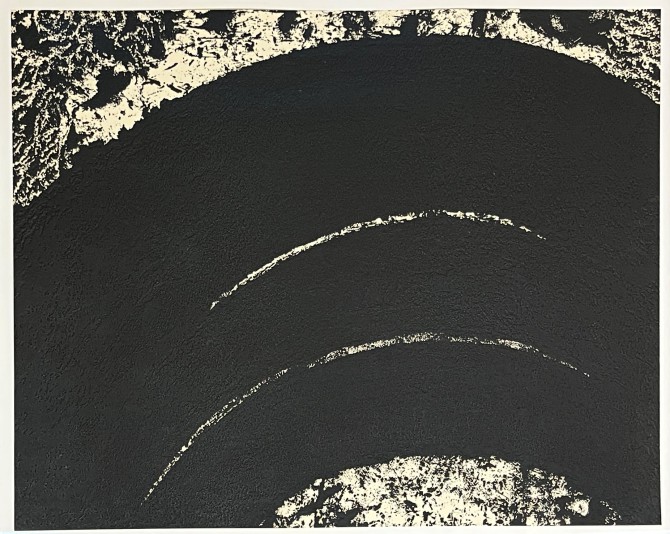
Richard Serra, Paths & Edges #8, 2007, Etching/ Mohachipaper, 59,4 x 74,3 cm, Ed. 60
Installation View Kabinett. Photo: Gernot Seeliger.
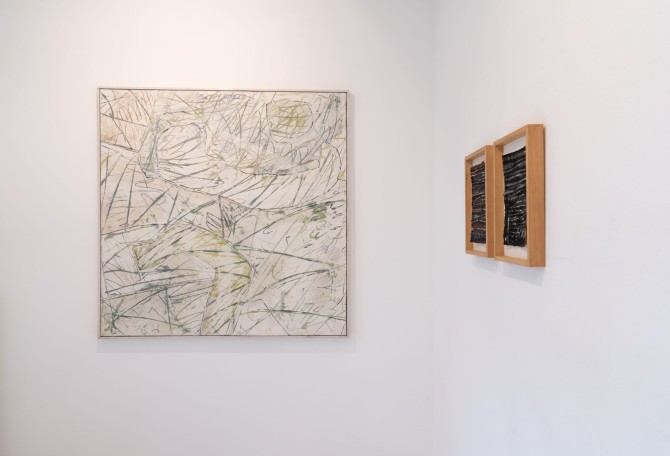
Installation View Kabinett. Photo: Gernot Seeliger.
Georges Noël, The white river, 1987, Mixed media/ canvas, 120 x 120 cm
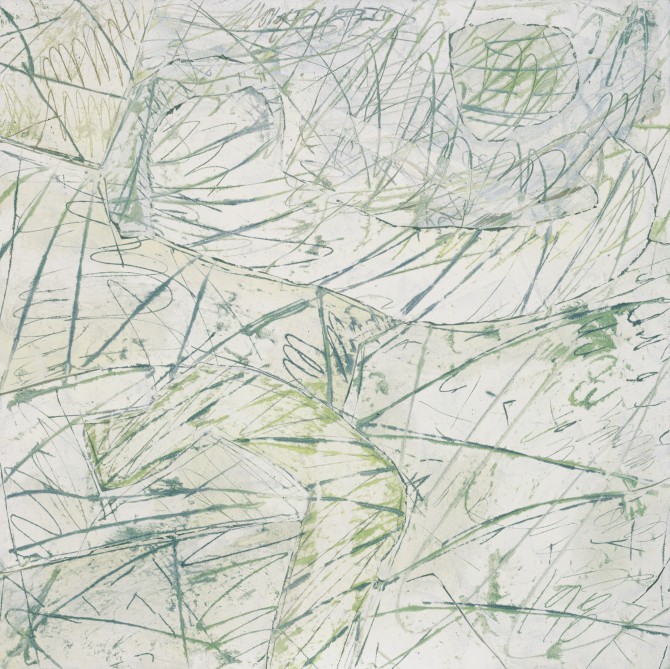
Georges Noël, The white river, 1987, Mixed media/ canvas, 120 x 120 cm
Georges Noël, Kleine Berlin-Suite, 1993, Mixed media/ japan paper, 25 x 17 cm (SOLD)
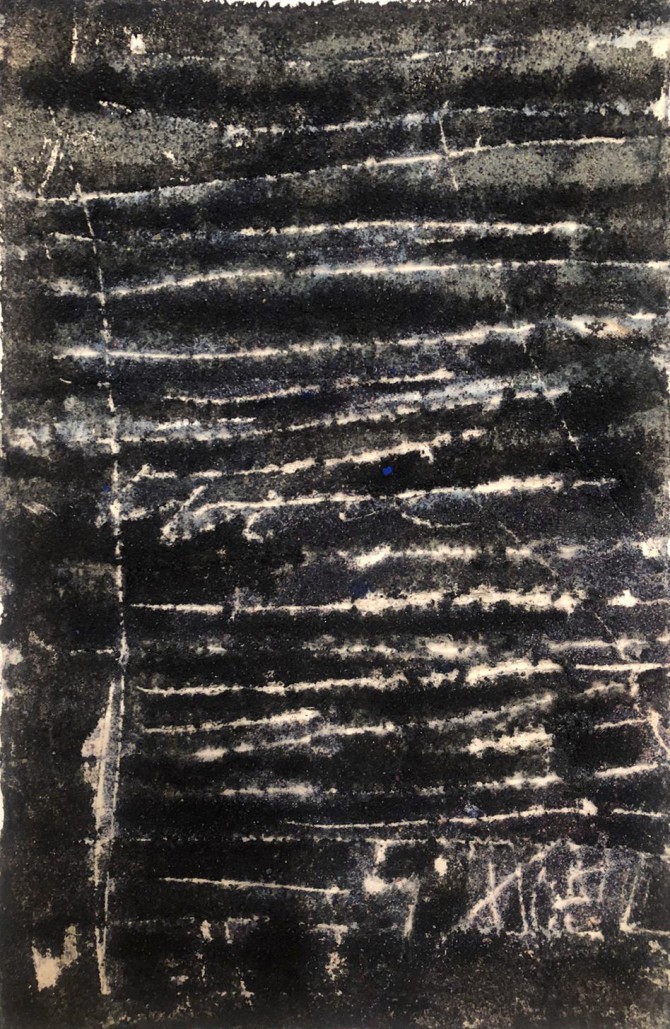
Georges Noël, Kleine Berlin-Suite, 1993, Mixed media/ japan paper, 25 x 17 cm (SOLD)
Georges Noël, Kleine Berlin-Suite, 1993, Mixed media/ japan paper, 25 x 17 cm (SOLD)
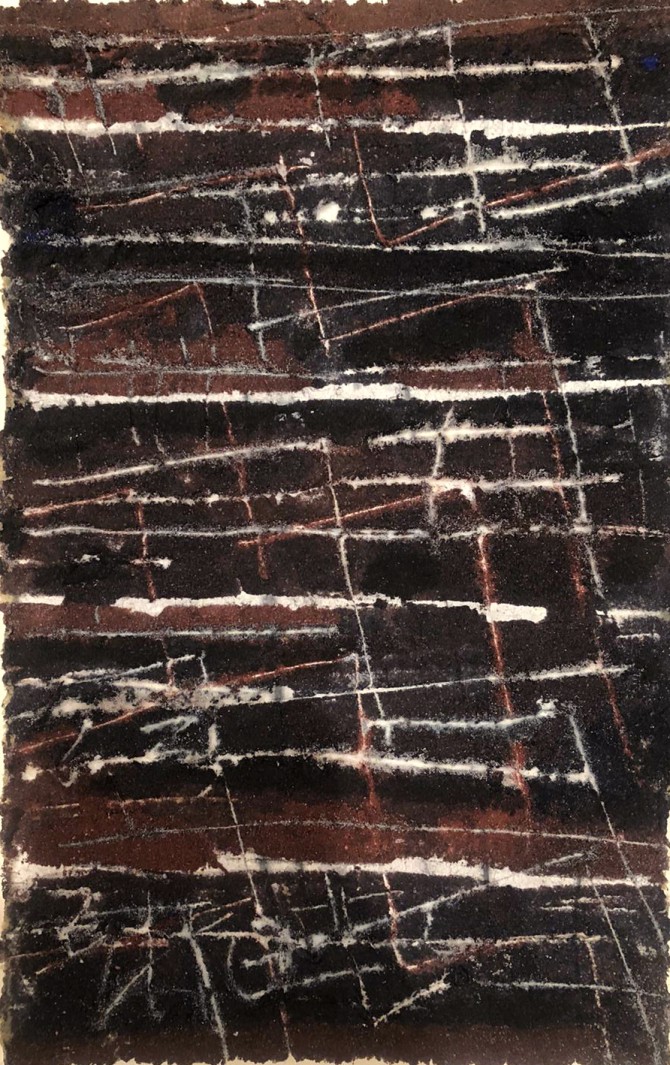
Georges Noël, Kleine Berlin-Suite, 1993, Mixed media/ japan paper, 25 x 17 cm (SOLD)
Installation View Kabinett. Photo: Gernot Seeliger.
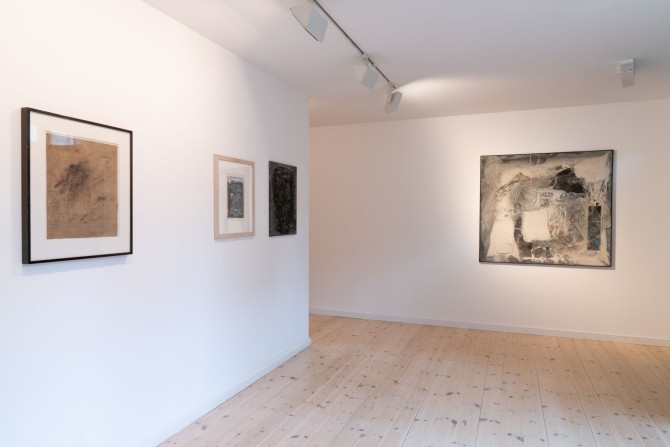
Installation View Kabinett. Photo: Gernot Seeliger.
K.F. Dahmen, Untitled (Preinersdorf), 1980, Mixed media/ paper, 47 x 38 cm
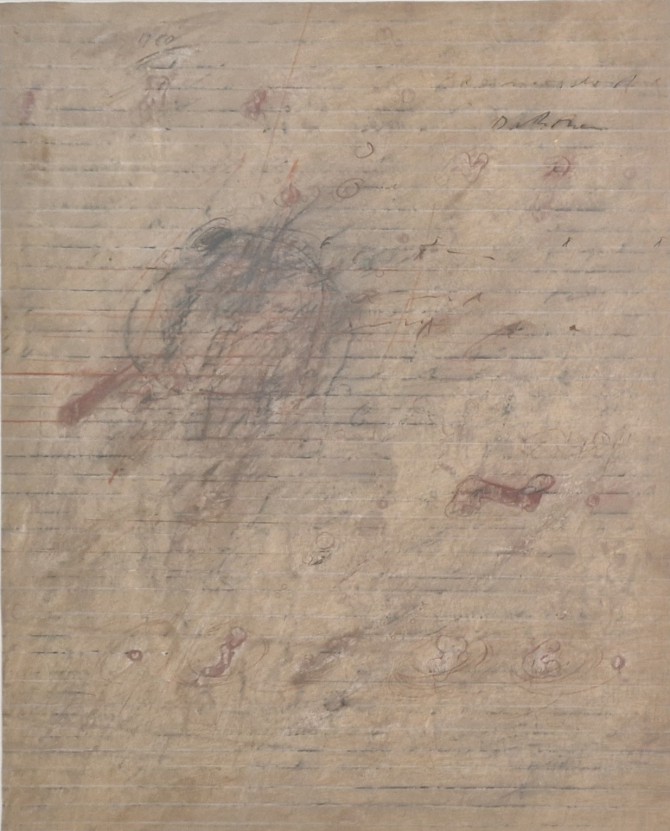
K.F. Dahmen, Untitled (Preinersdorf), 1980, Mixed media/ paper, 47 x 38 cm
Installation View Kabinett. Photo: Gernot Seeliger.
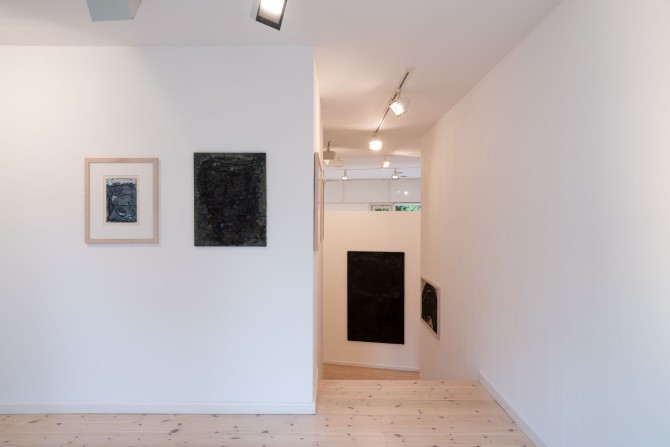
Installation View Kabinett. Photo: Gernot Seeliger.
Emil Schumacher, Untitled (G-50/1986), 1986, Gouache/ Sketchpad paper, 31 x 21,5 cm
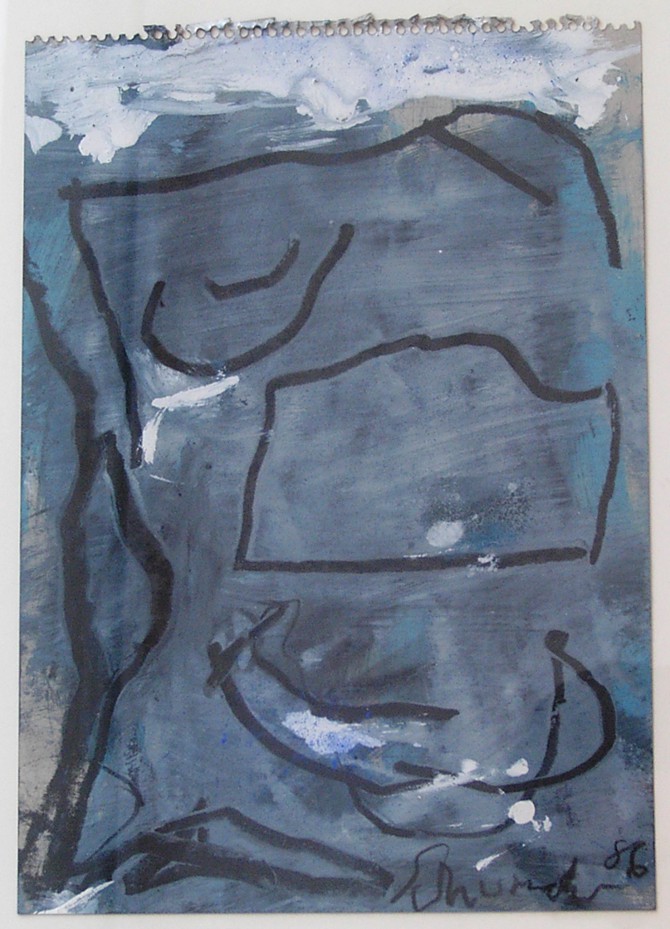
Emil Schumacher, Untitled (G-50/1986), 1986, Gouache/ Sketchpad paper, 31 x 21,5 cm
Emil Schumacher, Nefas, 1959, Oil/ canvas, 65 x 50 cm
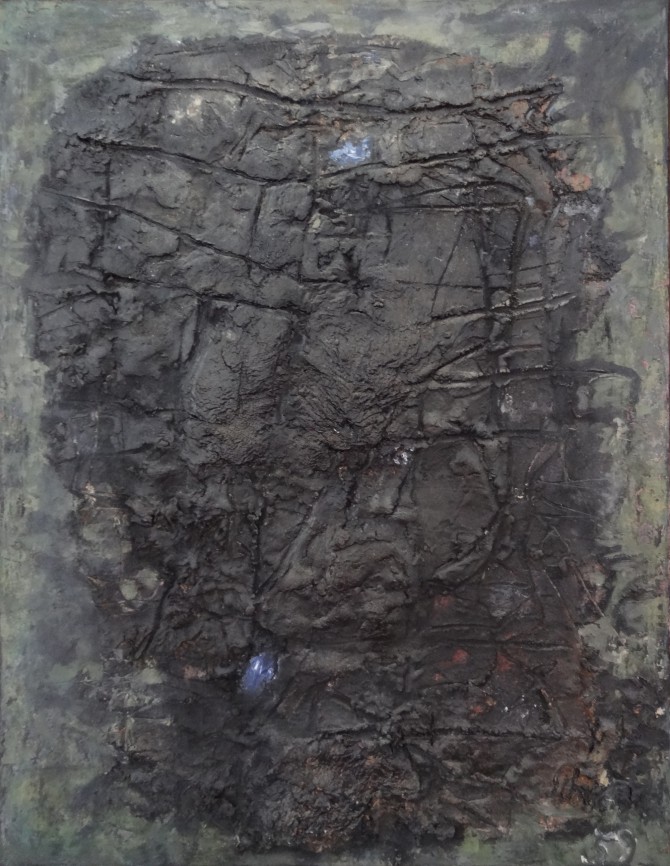
Emil Schumacher, Nefas, 1959, Oil/ canvas, 65 x 50 cm
Fred Thieler, Gr. M. 68/69, 1968/69, Mixed media/ collage, canvas, 128 x 138 cm
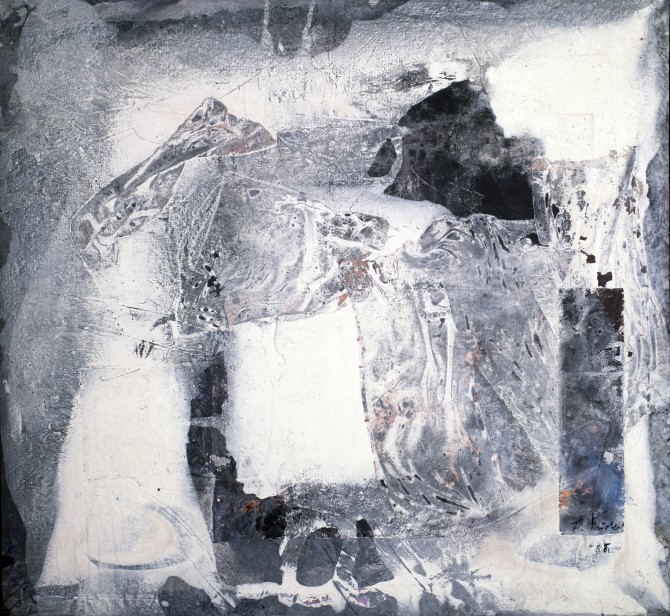
Fred Thieler, Gr. M. 68/69, 1968/69, Mixed media/ collage, canvas, 128 x 138 cm
Galerie Georg Nothelfer is pleased to present a solo show with Delia Jürgens in the main space in Corneliusstraße.
Concurrently Delia Jürgens´ work is also on view in the partner exhibition Garden of Delete - Inflections from July 7 - August 19 at frontviews at HAUNT, Berlin | www.frontviews.de.
Concurrently Delia Jürgens´ work is also on view in the partner exhibition Garden of Delete - Inflections from July 7 - August 19 at frontviews at HAUNT, Berlin | www.frontviews.de.
In Delia Jürgens' solo exhibition REFLECTIONS at Galerie Georg Nothelfer, works by the artist from the work group Fragmented Landscapes (2018 to 2021) come together under the title "The Future is but a Second away - WALD". With a physical exhibition at Glashaus Jena, a resulting digital work and architecture as well as a presentation of these on advertising displays on Kurfürstenstraße in Berlin and at Ebertplatz in Cologne, the exhibition at the gallery combines three complementary states of work and spaces of action. The history of the gallery, which since the 1970s has been particularly dedicated to works of German Informel and Tachisme, opens up interesting perspectives on Jürgen's practice. Taking into account updated painting techniques, in which, in addition to canvas and (oil) paints, video, digital copies and paraffin (petroleum products), resins, buttermilk, tea and glass come into play, Jürgen's works move in the field of tension between the development of form and its dissolution - fundamental questions of Informel and Tachisme. In addition to gestural painterly settings, Jürgens has developed various procedures in which the layering of different levels of reality and imagery creates moving blurs as well as information aggregation.
In the work "Untitled (forest bathing)", 2018-21, Jürgens combines her own video recordings of forests with Google Maps sequences found under the keyword forest on various social media platforms. Here, Jürgens is particularly concerned with the painterly potentials of the "tiring images", a result of endless circulation. These digitalised image levels, in which personal and calculated conceptions and representations of the forest blur, are superimposed on a glass ground worked with buttermilk. Simplistic dualisms of nature and artificiality are equally contradicted on the level of material and content. With the art-historically charged motif of the forest, references to Romanticism open up immediately - also as a desire for a supposedly untouched nature, which is currently manifesting itself in the form of a rampant regression aesthetic as a "return to a past that never existed" in various expressions. Here, questions about cultivation or - more specifically - environmental protection in the Anthropocene could be connected. At the same time, the forest is more than a space for discourse; it is also a place of intense sensual experiences. And it is to these phenomenological aspects that Jürgens appeals to in her works titled forest bathing, referring to an ecotherapy rooted in Japan in the 1980s, which builds on the healing effect of an all-sensory perception of the forest. In the case of Jürgen's works, this is more a remembered, visually represented perception than an actual one reproduced in the exhibition space. Thus the works aim precisely at the intersection of offline and online experience with their specific tactilities: On the contact zones in which information is received, sent, modified and reshaped, while a constant change takes place between private and public space and their associated politics. It is interesting in this context that Jürgens, in addition to using paraffin and glass - materials with a more industrial connotation – also works with domestically connoted carpets. In one of these works, which is in the tradition of tapestry titled "Untitled (Petrified #1)", 2018, Jürgens collages deconstructed stock images, brushstrokes and recordings of her studio, while taking into account the complexity of defining the time and place of production (determined physical localisation with indeterminate digital networking). The glitches that occur by chance in the process of storing the digital image have inscribed themselves as a further image layer, whereby a tension between pigment, pixel and yarn is created.
Such a deliberate opening for the unexpected within a set frame is what Jürgens has created through a combination of loose and rigorous thinking in another process in her work with paraffin. For the work "Untitled (reflection/we became cosmic)", 2018-21, paraffin - a hydrocarbon mixture - is heated and liquefied in phases and applied to the back of the canvas, which means that the exact shape and colour of the front can only be controlled to a limited extent. Layer by layer, the paraffin wax connects to an alternative; to "layers of sediment that also include considerations of one's own consumption of resources", as Jürgens puts it. In addition, paraffin, which often emerges as a by-product or waste product from industrial manufacturing processes, is reminiscent of the circulation of objects, which, in addition to the rhizomatic dissemination of the images, draw further circles. (Nele Kaczmarek)
Delia Jürgens (*1986 in Hanover), lives and works between Hannover, Cologne and Los Angeles. She graduated from the Braunschweig University of Fine Arts and the Hanover University of Applied Arts and Sciences. Her work is shown in national and international museums. In 2018 she was awarded the Sprengel Prize for Visual Arts by the Niedersächsische Sparkassenstiftung and the Sprengel Museum.